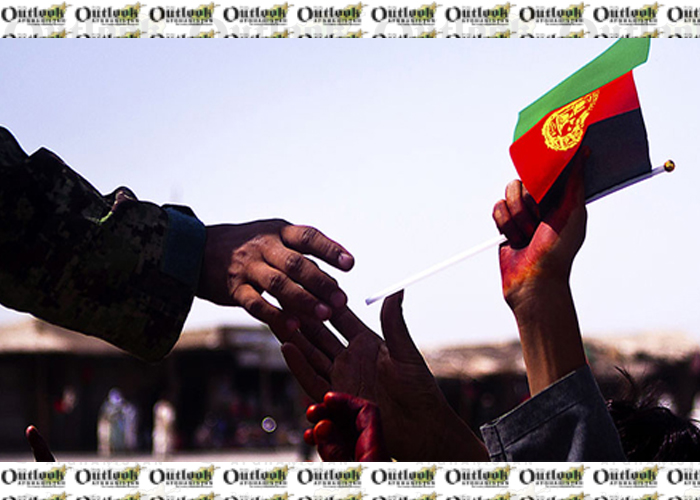Peace is one of the vital and natural desires of human beings so that life without a safe environment is hard and miserable. Every human effort is made to create an atmosphere in which he can live easily with happiness and bliss.
Peace paves the ways for social and political changes in war-torn countries but it is not reachable without considering its social, economic and political requirements.
In fact, the peace process cannot be successful unless it meets its certain social, political and economic requirements. According to experts, the appropriate conditions, and time for the peace process with considering the root causes of the conflict are key elements of a lasting peace agreement. In the other word, the peace process which is led to lasting political agreement is long, complex and multifaceted and it is likened to onion layer in terms of complexity. In general, a large set of factors combined with appropriate time, bed and contexts can pave the way a lasting peace agreement.
This is about ten years that peace process has begun in Afghanistan without any tangible outcome. The initial step of Afghan peace process has begun during the former president of Afghanistan yet no morning is begun without violence in the country. The reason is that the social, cultural, political and economic requirements of a lasting peace have not been fulfilled in the country.
We have forgotten that Afghanistan is a country that has been in war and conflict for almost four decades. Undoubtedly, the war has different internal, regional and international factors; it is also fueled by local weakness such as poverty, unemployment, discrimination and ethnic hegemony, insults and humiliation of other local groups. These issues have not only paved the ground for civil war and national divisions but also paved the ground for others to seek their interests in intensifying war in geography of Afghanistan.
Therefore, the Afghan peace makers should first of all note that it is not feasible to reach a peaceful, developed and prosperous Afghanistan without lasting peace in the country and secondly the lasting peace is not possible unless consider all these requirements and factors in order to reach peace which is the ingrained dream of Afghan people.
In clearer term, peace is not only lack of war and conflicts. Peace is not only announcement of a ceasefire.
If look at past forty years, several times we had ceasefire but it had not led to a lasting peace in the country.
Therefore, peace has different social, cultural, political and economic dimension to be considered.
the leaders of peace process also need to show enough devotion, braveness and commitment in the peace process. In fact, it is high time that Afghan politician forget about their personal and ethnical interests if they want to reach a peaceful and modernized Afghanistan. It is time to ask deeper question why the war has not ended after two decades of presence of international community in the country. Why there is fear as soon as the US withdraws from the country, the civil war will start? Why the US and international official, after 20 years, come to a calculation that the war in Afghanistan has no military solution and it should be resolved through negotiation at talks table. In fact, Afghanistan should recognize its turning-point through a realistic, deep and win-win negotiation in national, regional and international level. The Doha peace show can open such a deep and win-win negotiation provided that we actively proceed with a realistic approach prioritizing the strategic interests over personal interests.
The biggest mistakes of Afghan peace process are that we do not proceed with scientific approach and not consider these requirements in reaching lasting peace in the country. Despite forty years of war, we do not have a specialized peace institute to undertake the autopsy of peace in the complicated context of Afghanistan. We have extremely belittled the peace process forgetting its multiple roots, factors and requirements. Instead of analyzing the root factors, we beg peace from this and that expecting to do a miracle for us. Indeed, not only Afghan peace makers have made big mistakes about in peace process but also international allies. For example, the peace deal agreement which was signed between Tromp administration and Taliban was unilateral without considering the demand of Afghan government, Afghan people and other stakeholders.
Therefore, in simultaneity with Joe Biden review, we also need to have a deeper and more conprehensive view about lasting peace in the country.
In final, we must realize that peace is beyond slogans or temporary ceasefire. Peace is not achieved unless we truly believe in it and know that there is a common law that one should love his neighbor as himself. Promotion of this feeling is crucial to leaders of peace process. It is the only way that can increase trust, sympathy and collaboration against vices like corruption, discrimination and violence.
It gives people sense of genuine peace and security so as to know each other better and understand each other’s sensitivity.
We must learn that it was the power of social peace, national oneness and equality that changed the destiny of many countries in the world. The experience of other nation shows as long as we do not have social peace, freedom and equality we will not reach to political peace. Actually, this principle is more important in Afghanistan.
Given the geo-economic, geo-political and geostrategic location of Afghanistan and given the historical experiences, we will always be vulnerable unless strongly become one, but our national oneness strongly depends on social peace, social justice and overall requirements of a last peace in the country.
Home » Opinion » The Requirements of Peace in Context of Afghanistan
The Requirements of Peace in Context of Afghanistan
| Mohammad Zahir Akbari

